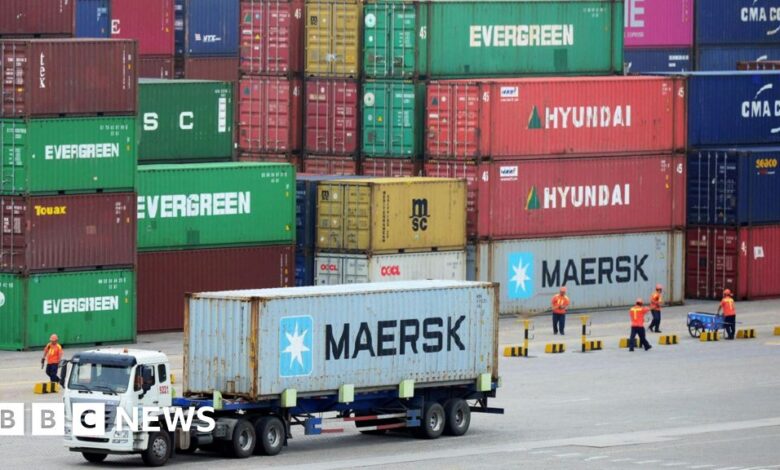Trump threatens China, Mexico and Canada with new tariffs

Donald Trump said he will impose new tariffs on China, Mexico and Canada on the first day of his presidency, in an effort to forcing them to crack down on illegal immigration and drug smuggling into the US.
The president-elect said that immediately after taking office on January 20, he will sign an executive order imposing a 25% tariff on all goods coming from Mexico and Canada.
He also said an additional tax of 10% will be imposed on China until the government stops the smuggling of synthetic opioid fentanyl from the country.
If Trump carries out these threats, it would mark a major escalation of tensions with America’s three largest trading partners.
These measures are likely to cause disruption to global supply chains and will have a strong impact on the three countries subject to tariffs.
Trump said in a post on his Truth Social platform that tariffs on Mexico and Canada will remain in place until the two countries clamp down on drugs, especially fentanyl, and migrants crossing the border illegally. .
“Both Mexico and Canada have the absolute right and power to easily resolve this long-simmering problem,” he said.
“It’s time for them to pay a huge price!”
In a separate post, Trump criticized Beijing for not following through on a promise he said Chinese officials made to carry out the death penalty for people caught trafficking fentanyl.
A spokesperson for the Chinese embassy in Washington told the BBC “the idea of China deliberately allowing fentanyl precursors to flow into the United States is completely contrary to reality and reality”.
“China believes that Sino-US economic and trade cooperation is win-win in nature,” he added. No one will win a trade war or a tariff war.”
The Biden administration has called on Beijing to do more to stop the production of ingredients used in fentanyl, which Washington estimates killed nearly 75,000 Americans last year.
During his election campaign, Trump threatened Mexico and China with tariffs of up to 100%, if he deemed it necessary, much higher than the tariffs he imposed during his first term in office.
Trump also said he would end China’s most-favored nation trade status with the United States – the most favorable terms Washington offers on tariffs and other restrictions.
Last year, more than 80% of Mexico’s exports went to the United States, while about 75% of Canada’s exports went to its larger neighbor.
Even after years of bitter trade disputes between the world’s two largest economies, the US still accounts for about 15% of China’s exports.
Tariffs are a central part of Trump’s economic vision – he sees them as a way to grow the US economy, protect jobs and increase tax revenue.
He has previously stated that these taxes “will not be a cost to you but a cost to another country”.
This is almost universally considered a mistake by economists.
“This is clearly consistent with his campaign promise to use tariffs,” Stephen Roach, senior fellow at Yale Law School’s Paul Tsai China Center, told the BBC’s Business Today programme. as a weapon to carry out many of its policy initiatives.”
Trump’s choice for Treasury Secretary, Scott Bessent, has previously suggested that the president-elect’s threat to impose major tariff hikes is part of his negotiating strategy.
“My general view is that at the end of the day, he is a free trader,” Bessent said of Trump in an interview with the Financial Times before he was nominated for the role.
“It’s escalating to de-escalating.”
It comes as China’s economy is in a significantly more vulnerable position than it was during the previous Trump presidency.
The country is grappling with a number of serious problems, including an ongoing real estate market crisis, weak domestic demand and growing local government debt.
The new tariffs appear to violate the terms of the US-Mexico-Canada Agreement (USMCA).
The agreement, which Trump signed into law, took effect in 2020. It continued a duty-free trade relationship between the three neighbors.
According to Reuters news agency, after Trump made the tariff threat, he discussed trade and border security with Canadian Prime Minister Justin Trudeau.
“Mexico is the top trading partner of the United States, and USMCA provides a framework of certainty for domestic and international investors,” the Mexican finance ministry said.




